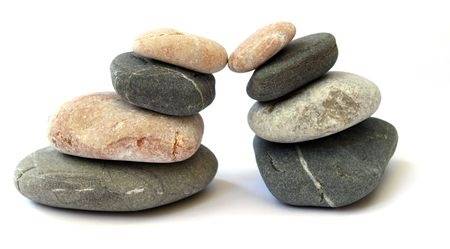 The concept of "wounded healer"--the idea that people who have survived illness or trauma may have special abilities to help others facing similar challenges--has deep roots within the history of addiction treatment and recovery. During the 1980s and 1990s, the perceived value of the wounded healer was eclipsed by the growth and professionalization of the addiction treatment workforce in the United States. Between 1965 and 2010, the percentage of addiction professionals with lived personal/family experience of addiction recovery plummeted from more than 70% of the workforce to approximately 30% as educational credentials became valued more than experiential knowledge. Today, there is growing recognition of the value of peer-based recovery support services provided to individuals and families outside the framework of recovery mutual aid societies. A new generation of peer helpers is working in volunteer and paid roles within new grassroots recovery community organizations, within addiction treatment programs, and within such allied fields as primary healthcare, child welfare, and criminal justice. This trend reflects not a rejection of scientific knowledge and professional treatment, but an effort to integrate addiction science, cumulative clinical experience, and knowledge drawn from the lived personal/family experience of addiction recovery.
The concept of "wounded healer"--the idea that people who have survived illness or trauma may have special abilities to help others facing similar challenges--has deep roots within the history of addiction treatment and recovery. During the 1980s and 1990s, the perceived value of the wounded healer was eclipsed by the growth and professionalization of the addiction treatment workforce in the United States. Between 1965 and 2010, the percentage of addiction professionals with lived personal/family experience of addiction recovery plummeted from more than 70% of the workforce to approximately 30% as educational credentials became valued more than experiential knowledge. Today, there is growing recognition of the value of peer-based recovery support services provided to individuals and families outside the framework of recovery mutual aid societies. A new generation of peer helpers is working in volunteer and paid roles within new grassroots recovery community organizations, within addiction treatment programs, and within such allied fields as primary healthcare, child welfare, and criminal justice. This trend reflects not a rejection of scientific knowledge and professional treatment, but an effort to integrate addiction science, cumulative clinical experience, and knowledge drawn from the lived personal/family experience of addiction recovery.
Working under such titles as recovery coach, recovery support specialist, peer helper, and recovery guide, peers are filling support roles across the stages of addiction recovery. Their growing presence represents a historical milestone in the evolution of addiction treatment and recovery support in the U.S.--functions that falls outside the boundaries of the recovery mutual aid sponsor and the addiction counselor. Given the increasing number of requests I am receiving for information on peer recovery support services, here is an abbreviated chronology of what I and my co-authors have written about such recovery support roles.
2004: The history and future of peer-based addiction recovery support services
2006: Sponsor, Recovery Coach, Addiction Counselor: The Importance of Role Clarity and Role Integrity
2007: Ethical Guidelines for the Delivery of Peer-based Recovery Support Services
2009: Peer Recovery Support Services: History, Theory, Practice and Scientific Evaluation (Monograph)
2012: Historical Perspectives on Recovery Support
2012: New Addiction Recovery Support Institutions: Mobilizing Support beyond Professional Addiction Treatment and Recovery Mutual Aid
2013: Betty Ford Institute Consensus Statement on the Status and Future of Addiction Recovery Support Services in the United States
2014: The Integration of Peer Recovery Supports within Philadelphia's Crisis Response Centers:?An In-progress Report from the Field
2014: Outreach Services and Recovery Management: The New Pathways Approach
2014: Recovery Agenda: The Shared Role of Peers and Professionals.
To explore how peer recovery support services are being implementing in diverse cultural contexts, readers may also wish to explore my interviews with:
Cathy Nugent on Recovery Community Mobilization and Recovery Support
Tom Hill on Recovery Advocacy and the State of Recovery Support Services
Don Coyhis and Eva Petoskey on Recovery Support in Indian tribal communities
Phillip Valentine on Recovery Support Services in Connecticut
Walter Ginter on Medication Assisted Recovery Support Services in New York City
There is a zone of energy, authenticity and effectiveness that characterizes the earliest stages of successful social and therapeutic movements. These qualities can be diluted or lost as movements become institutionalized (e.g., professionalized, commercialized or colonized by larger forces within the culture). The documentation of the earliest contributions of these movements thus takes on both historical and practical importance.
In recent decades, the addiction treatment field has been marked by a loss of recovery volunteers within the addiction treatment milieu, reduced recovery representation among addiction counselors, addiction counselor training that denies the legitimacy of experiential knowledge, and weakened connections between what are now defined as addiction treatment businesses and indigenous communities of recovery. It is in this context that new peer recovery support service roles promise several unique contributions: living proof of the reality and transformative power of long-term addiction recovery, recovery attraction via mutual identification, a service relationship lacking any hint of contempt or moral superiority, knowledge of and assertive linkage to local communities of recovery, and experience-grounded guidance through the stages of recovery.
The advent of peer recovery support services is an important milestone within the history of addiction treatment and recovery. Such services stand as potentially important resources to speed recovery initiation, enhance service retention in addiction treatment and facilitate the transitions to recovery maintenance, enhance the quality of personal/family life in long-term recovery and to support efforts to break intergenerational cycles of addiction and related problems. Cumulative experience and scientific research will tell whether the promises of peer recovery support services are fulfilled and sustained. If such service relationships achieve their promise but are then lost, their presence in this era will stand as a valuable artifact to be rediscovered in the future, just as this power is now being rediscovered.